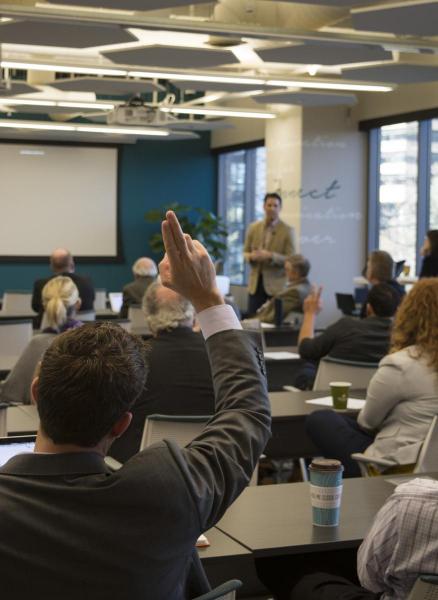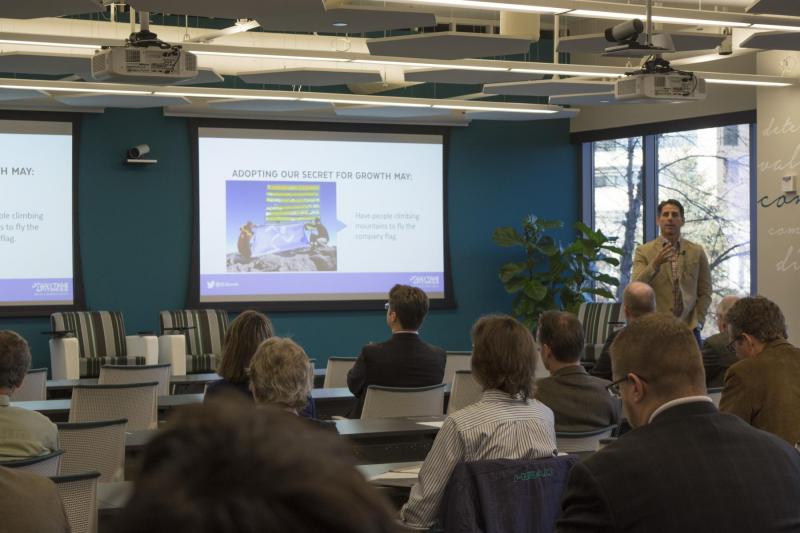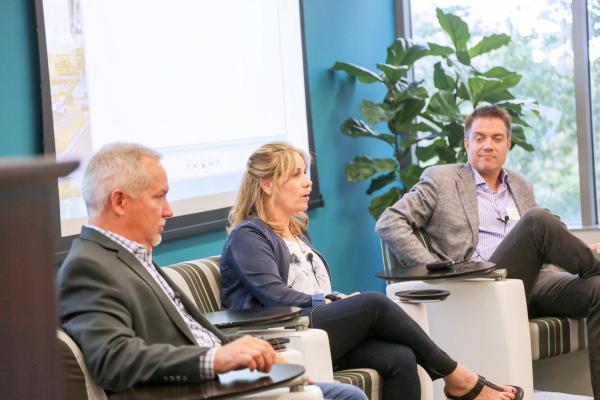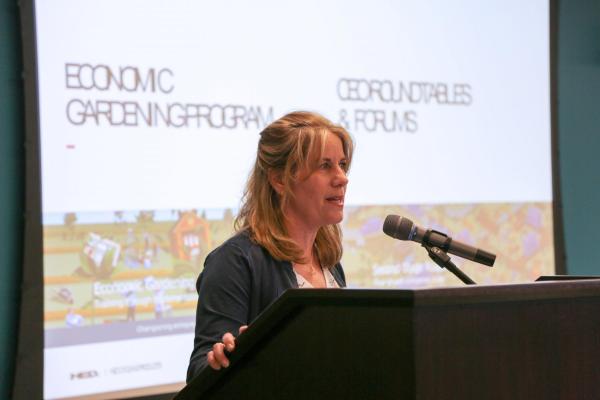Growth Opportunity for Roseville Companies
24 Aug 2018
Traditional economic development practices focused on attracting big companies to an area to boost its economy. In recent years, there’s been a shift towards supporting local entrepreneurs and small businesses.
 Even though established local businesses are already invested in a community, they often find it harder to get the support they need to expand. The Economic Gardening program, supported by Ramsey County, is focused on helping second-stage businesses. It offers $10,000 in free consulting services geared toward businesses growth.
Even though established local businesses are already invested in a community, they often find it harder to get the support they need to expand. The Economic Gardening program, supported by Ramsey County, is focused on helping second-stage businesses. It offers $10,000 in free consulting services geared toward businesses growth.
“There’s a sense that there are programs to help entrepreneurs and startups but there’s really nothing for when businesses are ready to take the next big step. They don’t know where to go and exactly how to proceed. This is designed to facilitate that,” says Denise Beigbeder of Ramsey County’s Community and Economic Development department.
Such companies can be significant job creators. According to YourEconomy.org, more than 37 percent of jobs and 36 percent of sales were generated by second-stage companies between 2005 and 2015.
 The practice of “economic gardening” emerged in the late 1980s after missile manufacturer Martin Marietta (now Lockheed Martin) cut 7,500 jobs in Littleton, Colorado. Rather than trying to lure big corporations with incentives and tax rebates, the community decided to focus on growing its own companies from within.
The practice of “economic gardening” emerged in the late 1980s after missile manufacturer Martin Marietta (now Lockheed Martin) cut 7,500 jobs in Littleton, Colorado. Rather than trying to lure big corporations with incentives and tax rebates, the community decided to focus on growing its own companies from within.
This practice was a great success. In two decades, Littleton more than doubled its jobs. Now its economic gardening practices are being held up as a model for others.
.jpg/2018_04_20%20(4)__800x600.jpg) The Economic Gardening program offers a suite of sophisticated business growth resources to non-competing second stage businesses with the potential for job creation and longer-term business growth. Ramsey County and the City of St. Paul are partnering with the National Center for Economic Gardening to provide funding for ten scholarships for the program each year.
The Economic Gardening program offers a suite of sophisticated business growth resources to non-competing second stage businesses with the potential for job creation and longer-term business growth. Ramsey County and the City of St. Paul are partnering with the National Center for Economic Gardening to provide funding for ten scholarships for the program each year.
Companies must have more than 10 and under 99 full time employees and annual revenue between $1 million and $50 million to qualify.

Participants are company executives. Through the program, they engage in CEO peer coaching, collaboration roundtables and informational forums. They have access to a network of experts and receive technical assistance as well as valuable, targeted market research about competitors and support for improving business visibility through search engine optimization and social media marketing.
 Beigbeder says what differentiates this from other programs is that each business gets 40–50 hours of direct assistance from experts. CEOs get help identifying problem areas and obstacles to growth. They get feedback and resources to overcome them from a team of mentors who have worked in Fortune 500 companies.
Beigbeder says what differentiates this from other programs is that each business gets 40–50 hours of direct assistance from experts. CEOs get help identifying problem areas and obstacles to growth. They get feedback and resources to overcome them from a team of mentors who have worked in Fortune 500 companies.
Most of the interactions occur by conference call or web, making it convenient to fit into a CEO’s busy work day. The program maintains a local networking aspect so that participants can have access to peers in the program as well as those who have successfully completed the process.
Beigbeder says that executives don’t often think they have time to participate in the program. But she points out it’s a minimal investment of time — about 4–6 hours per month over the course of eight months.
“Sometimes it’s like pulling teeth to get them to go. But once they go, everyone who completes the program has emphasized how valuable it is to them,” says Beigbeder.
Anne Hed, founder of Hed Cycling, was a beneficiary of the Economic Gardening program. She received strategic advice about benchmarking against competitors and refining her business model. After joining the program, she added a number of employees and recently expanded into a 24,000-square foot production facility in Roseville.
“I’m more invigorated about growing the business than I used to be,” Hed says. “I had gotten complacent, and as a business owner, complacency is not a good place to be in. Participating in the Economic Gardening program has given me the confidence to get out of my comfort zone and go for it. If we stay on task, we can double our business in five years.”
Beigbeder notes that the program is a way for Ramsey County to reward businesses for their local investments. “From my personal perspective, our businesses are important citizens of our community. By offering this program, we feel we can give back to them.”
Applications are accepted throughout the year on a first come, first served basis. The next round of participants start in the fall. Find out more.
More Topics

Minnesota solar market surges
Aug 17 2018
In a tight labor market, Minnesota employers look to an under-utilized labor pool: workers with disabilities
Aug 15 2018








